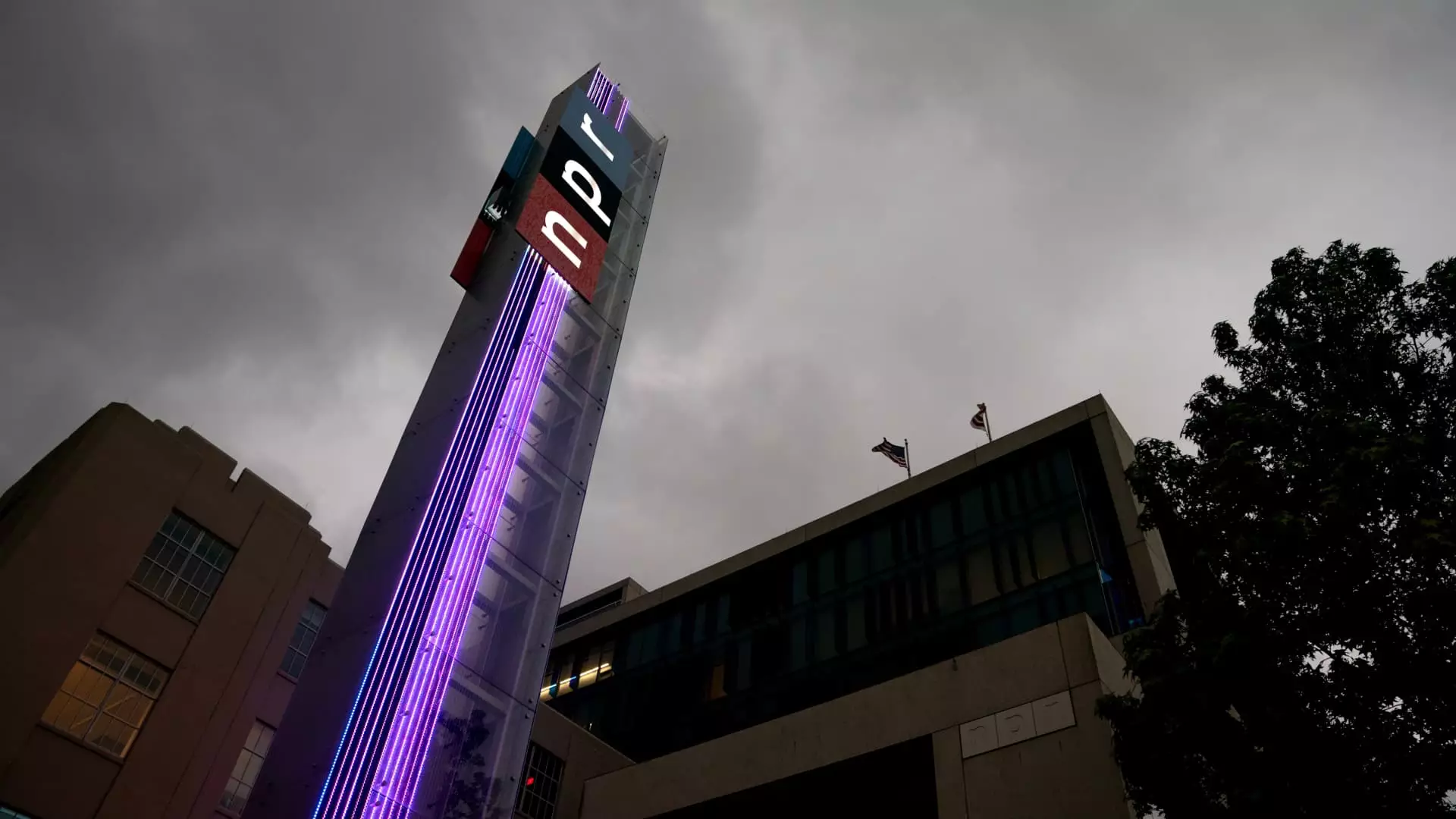In a bold move characteristic of his controversial presidency, Donald Trump has instigated a legal hornet’s nest with his recent executive order aimed at ceasing federal funding for National Public Radio (NPR). It’s a not-so-subtle jab at the media, one that seeks not merely to alter the funding landscape but to redefine the very nature of public discourse. This maneuver is troubling on multiple fronts and presents a clear danger to the freedoms enshrined in the First Amendment. It raises the specter of a government that would prefer a silenced press over one that boldly reports the truth, holding power accountable.
The lawsuit filed by NPR, along with its affiliate stations—including Colorado Public Radio and KSUT Public Radio—demands to block Trump’s order on constitutional grounds, arguing it encompasses speech and press freedoms. They claim that not only does the order violate First Amendment protections, but it also encroaches upon Congress’s power to regulate funding for such entities. This legal battle is more than a disagreement over financial resources; it’s a dispute over the sanctity of journalistic independence in an era increasingly suffused with political antagonism towards the media.
Understanding the Funding Landscape
To effectively analyze the ramifications of Trump’s actions, one must dig into the workings of public broadcasting funding. Originally structured in the 1970s, NPR began its journey with significant federal funding that has since been curtailed. Today, only a trifling 1% of NPR’s revenue directly comes from the government. The bulk of funding stems from local member stations and, significantly, from corporate sponsorships. This evolution indicates that NPR has been compelled to adapt and diversify its funding sources, showcasing a resilience that should be recognized rather than sabotaged.
Trump’s assertion that government funding creates a “corrosive” effect on journalistic independence is deeply ironic. It implies that the only viable journalism is one that is entirely free from any public oversight or integrity checks, a stark contradiction to the foundational principles of democracy where accountability isn’t just welcome but essential. This framing positions public broadcasting as a foe of democracy rather than an indispensable ally in informing the public.
A Call to Defend Journalism
The lawsuit’s claim highlights a stark danger—the potential for governmental censorship under the guise of financial management. If the Trump administration perceives any reporting, however well-researched and factual, as biased, does that not set a terrifying precedent for what constitutes ‘acceptable’ journalism? This move calls into question the future of independent journalism, as any narrative critical of the administration could face retaliatory measures disguised as budgetary cuts.
Furthermore, we must understand the implications of this order in the broader context of American democracy. The chilling effects of such unilateral actions could discourage not only NPR but all media entities from publishing content that might antagonize political powers. Already, we see journalists wrestling with the anxiety of backlash, and this is a fear that should concern every citizen who values a free press. For what is democracy without accountability?
Political Implications of Suppressing the Voice of the People
The administration’s rationale, as articulated by White House spokesman Harrison Fields, suggests a vision of government efficiency that dismisses the historic purpose of public radio: to provide accurate, diverse, and inclusive news. The political ramifications are profound. By targeting NPR and the Public Broadcasting System (PBS), the administration is signaling that any outlet speaking truth to power will not be tolerated. This should alarm anyone who believes in the marketplace of ideas, where varied voices and perspectives converge to create a more informed electorate.
This strategy sets a dangerous precedent—a stratagem aimed at curtailing dissent while further empowering corporate entities less beholden to the public interest. In a climate where misinformation spreads rapidly, can we afford to hamstring the institutions that strive to bring clarity and balance to the news landscape?
Ultimately, the fight against this executive order transcends the courtroom; it mirrors the struggle for the soul of our nation. Public media has long served as a vital conduit for democratic dialogue, and its suppression is emblematic of an unnerving trend toward authoritarianism. It is a wake-up call for those who treasure a robust and unfettered press: the time to engage, defend, and demand accountability is now.

Leave a Reply